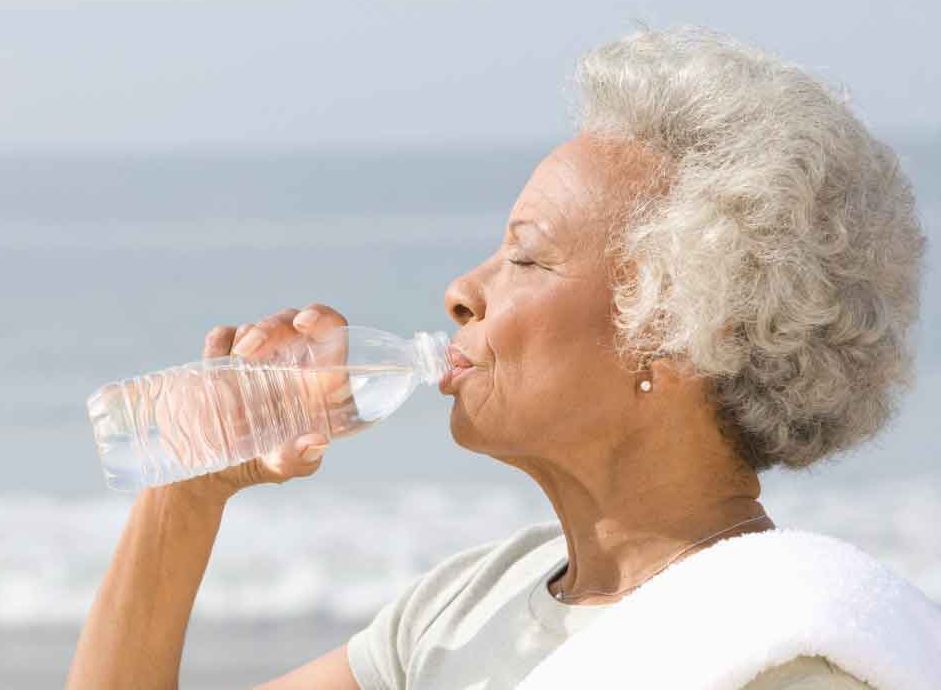Why Drinking Water Is Important for Seniors

Seniors need to drink water. Far too many of them suffer from dehydration. Here's what you need to know about the signs and symptoms of dehydration.
Only about half of Americans drink enough water per day, and seniors are even worse.
About 40 percent of adults drink fewer than four cups of water a day. You need to drink between four and six a day (eight is a myth).
YOU MIGHT ALSO LIKE: Exercise Slows Aging
The importance of hydration for seniors
If you’re older, you probably drink even less on average because changes in your brain cause you to lose your ability to know when you’re thirsty.
You may also take medications like diuretics and laxatives, which can cause dehydration. You may have limited mobility that keeps you from the simple task of reaching for a glass or cup.
You may even suffer from urinary incontinence, which is more common in seniors. That problem often makes you unwilling to drink out of fear of going to the bathroom too often.
As you age, the water content of your body decreases. The total body water content of a 75- to 80-year-old person is nearly 50 percent less than a young person. The decline in water content is even greater in elderly women.
“Dehydration can lead to a compromised immune system, constipation, and even death since the organs are mostly water,” said Rebecca Scritchfield, MA, RD, a nutrition and exercise expert specializing in healthy weight management.
Your organs pull water from your brain, shrinking it and causing headaches, she said. Chronic, persistent dehydration can lead to cell death and, without proper rehydration, tissue death.
Signs and symptoms of dehydration in the elderly
Symptoms of dehydration include:
- Weakness
- Leg cramps
- Fatigue
- Confusion
- Decreased skin turgor (elasticity)
- Rough, dry, or coated tongue
- Fever
- Weight loss
- Restlessness
- Agitation
Hydration tips for seniors
- Keep water accessible.
- Try foods with high water content.
- Drink even when you aren't thirsty.
- Mix up your (healthy) beverages.
- Avoid diuretic drinks.
If you don’t like to drink water, you can choose from many sources of liquids that contain water, such as:
- Coffee
- Tea
- Milk
- Fruit juice
- Fruit-infused water
- Sports drinks
- Coconut water
Foods with high water content include:
- Cucumbers
- Tomatoes
- Watercress
- Apples
- Celery
- Lettuce
- Watermelon
- Peaches
You can also:
- Keep a pitcher of water near a favorite seat.
- Experiment with beverages at different temperatures.
- Try something savory like soup broth.
- Eat popsicles made from fruit juice.
- Drink smoothies or milkshakes.
Try to drink small amounts of fluids throughout the day to make getting enough water easier. A lot of sips add up if you drink from a water bottle all day long.
Updated:
November 02, 2023
Reviewed By:
Janet O’Dell, RN